The electronics industry is the “champion” export product. However, the position of enterprises in this industry is not commensurate with the turnover that this industry has achieved.

Export turnover is constantly increasing
As an industrial enterprise supporting many electronics manufacturing enterprises In the country, currently, each month, the Viet Han High-Tech Manufacturing Enterprise produces 10,000 rolls of network cables and 20,000 rolls of electric cables to supply to domestic FDI partners. This number is expected to increase by 150% in the last months of the year.
In the trend of digital transformation of many companies and fields, Thanh Giong Computer Company also recorded an increase in orders for all types of computers compared to the same period. However, to increase competitiveness, they prioritize orders for specialized computers, so imported components are also from major partners in the world .
Currently, at the end of the third quarter of 2024, although revenue has reached the annual target, orders are still pouring in in the last months of the year, forcing the company to work overtime and hire more workers to meet delivery times. In addition to conquering domestic consumers, the company's products have also been welcomed by the international market.
Mr. Lai Hoang Duong, Director of Thanh Giong Computer Company, said that the Company has invested in technology and infrastructure, focusing on building the Thanh Giong computer brand "Make in Vietnam". Thereby, affirming the prestige and quality of products when exporting.
Since the beginning of the year, many electronics enterprises have had relatively positive business results. This is also the product with the highest export turnover among Vietnam's product groups. According to the General Department of Customs, the total export turnover of the electronics industry in the first 9 months of the year reached 97 billion USD, with a trade surplus of more than 9 billion USD. This is a huge contribution to the country's export value, as the electronics industry continues to lead the processing and manufacturing industries with high export turnover. Compared to the same period, the industry has had a growth rate of 10%.
In 2023 alone, the industry's export turnover will reach 109 billion USD with a growth rate of 10%. With the current growth momentum, in 2024, export turnover will likely continue to increase and reach about 120 billion USD, equivalent to about 14% of the country's total export turnover.
Assessing the electronics industry, Ms. Trinh Thi Thu Hien, Deputy Director of the Import-Export Department, Ministry of Industry and Trade , said that the electronics industry is a manufacturing industry that plays a key role in the economy, is a measure of the country's economic and technical development level and has a strong impact on other industries. Electronic products increasingly account for a large proportion of total import-export turnover and have a clear impact on the overall growth of the country's exports. Some products with high export turnover include microprocessors, memory, modules of all kinds, laptops, tablets, monitors of all kinds, etc.
Vietnam's electronics industry is asserting its increasingly high position in the global supply chain. The role of Vietnamese electronics enterprises is now becoming an indispensable part of the global electronics supply chain. This is a very encouraging signal, especially in the context of the Vietnam Semiconductor Industry Development Strategy to 2030, with a vision to 2050, which was issued by the Prime Minister under Decision No. 1018/QD-TTg dated September 21, 2024. In this strategy, electronics industry play a central role.

To make e-business big enough
Despite bringing in large export turnover to the economy, domestic electronics enterprises are facing numerous difficulties. Ms. Do Thi Thuy Huong, Executive Committee Member of the Vietnam Electronics Enterprises Association (VEIA), said that currently, most of Vietnam's electronics enterprises, as well as many enterprises in the supporting industry, are small and medium-sized enterprises. At this scale, enterprises often lack three important factors: capital, technology and human resources.
Besides, Vietnamese electronics enterprises still focus on processing and assembling, not focusing on creating supply chains or developing segments such as design, research and development (R&D), distribution, etc. to create higher value-added products, creating spillover effects for other supporting industry enterprises to develop together.
Dr. Mac Quoc Anh - Vice President and General Secretary of the Hanoi Association of Small and Medium Enterprises (HANOISME) said that to remove bottlenecks in the electronics industry, domestic enterprises must strengthen links and cooperation with partners in countries with core industries such as the US, Japan, Korea... Along with that, policies need to have more specific regulations on receiving advanced science and technology transfer, helping enterprises quickly access technology and improve competitiveness.
Regarding the development policy of this industry, Ms. Do Thi Thuy Huong said that the current policy to support the electronics industry is Decree 111/2015/ND-CP, which provides support and incentive policies for the development of supporting industries, but is still limited in development. The Ministry of Industry and Trade is drafting the Law on Key Industries, in which supporting industries are included as one of the important and central items of the development strategy for the next period. Therefore, it is hoped that the Law on Supporting Industries will be promulgated soon so that the industry, especially the electronics industry, can develop and soon participate deeply in the global supply chain.
Economist, Dr. Can Van Luc stated that electronics enterprises need to grasp global trade and investment trends and key partners; make good use of support policies on taxes, fees, and interest rates to promote digital transformation and circular business; increase clean and local raw materials; and promote the development of supporting industries.
Enterprises also need to integrate sustainable development factors into their business strategies. At the same time, diversify markets, partners, supply chains, products and services, and viable capital sources for green transformation, circular business, carbon credits, etc. because this is an irreversible trend.
“Enterprises need to be proactive, stay ahead of technology trends, especially new technology fields (AI, virtual reality, automation, cloud, cyber security, etc.) and participate more deeply in the global value chain (including semiconductors); develop human resources to meet new requirements...”, Dr. Can Van Luc recommended.
Source







![[Photo] Action for the Community tells stories of enduring journeys – both intimate and great, yet quiet and determined](https://vphoto.vietnam.vn/thumb/1200x675/vietnam/resource/IMAGE/2025/11/15/1763179022035_ai-dai-dieu-5828-jpg.webp)








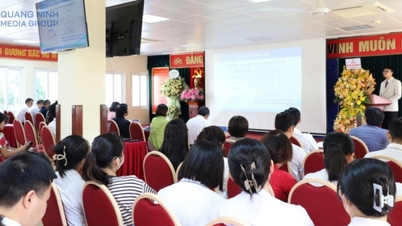




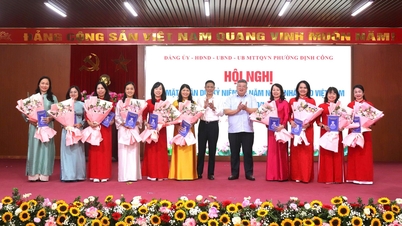
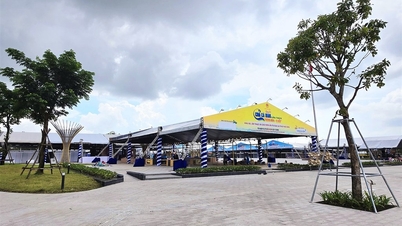

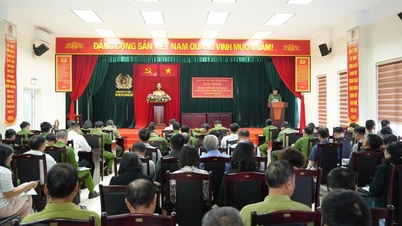
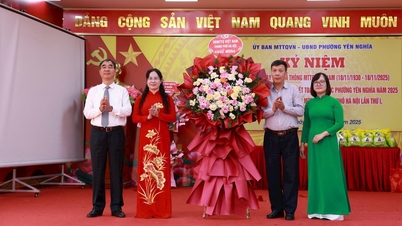
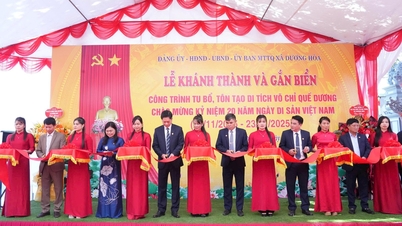








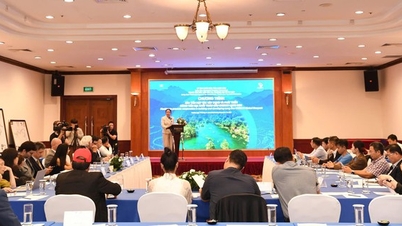












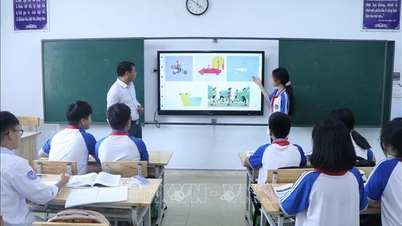




































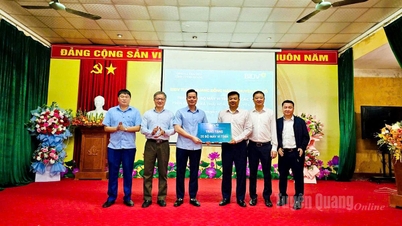

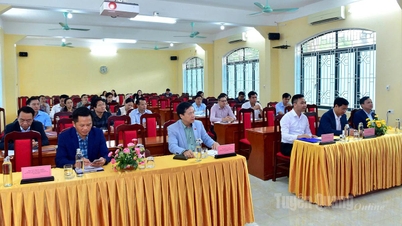
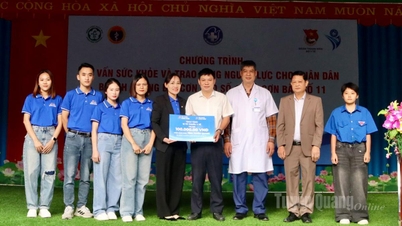













Comment (0)